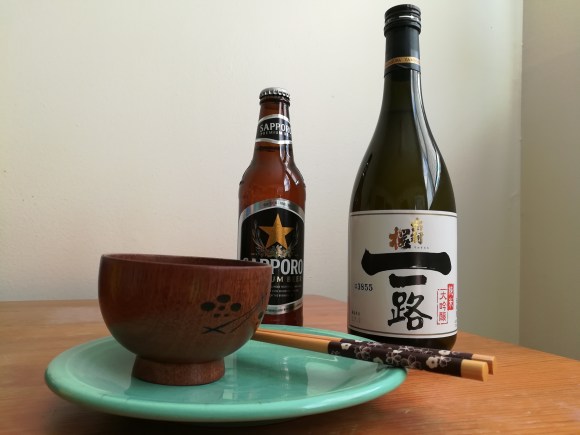
A simple act leads to a deep discussion on important cultural values within Japan vs. outside countries and traditional gender roles.
Who does the dishes in your household? Is it an expectation, or do they volunteer? Would they behave any differently at someone else’s house? As one Japanese net user found out, the answers to these questions may reveal more than they initially seem.
A little over a week ago, a single instance of doing something that was completely natural to her at an American friend’s party and the ensuing reaction prompted Twitter user @montserrat5 to post a series of four tweets in total on her thoughts about the experience. Japanese people from around the country have since chimed in with their opinions and observations as well, leading to a net-wide discussion on the subject.
Let’s take a look at the original tweet and scenario that sparked the debate:
米国人男性友人の家での飲み会で、お開きになり、ついお皿の後片づけを勝手に始めてしまった。彼が飛んできて「何するの?」私「え?片づけ」彼「まさか皿洗いが趣味の人?ちがうよね?やるならまず全員でジャンケンだよ」と笑って止められた。なんかハッとした。
— mon (@montserrat5) February 10, 2018
“I went to a drinking party at my American male friend’s place. As it was wrapping up, I started doing the dishes. He rushed over to me and asked, ‘What are you doing?’ to which I answered, ‘Huh? Cleaning up…’ He continued while laughing, ‘You’re not someone who actually enjoys doing the dishes as a hobby, are you? If someone’s gonna do them then everyone needs to play rock-paper-scissors first,’ which caused me to stop. Somehow I was taken aback.”
It’s important to note for the purposes of this exchange that the writer of the post is a Japanese female, who later clarified that the party took place in Japan and the attendees were almost all non-Japanese people. She continued in a second tweet:
飲み食いの後は女性が自然に片付けはじめ男性は当然のようにそれを見てる。そう染みついてた。日本人だけの飲み会だったら「女子力やね」なんて言われてたかも。でもその発想がない米国人の彼から見て「頼んでいないのに面倒を引き受けるナゾの人」に見えたらしかった。クセってこわい…w
— mon (@montserrat5) February 10, 2018
“Men view women naturally cleaning up after eating and drinking as completely normal. That idea is so deeply ingrained. If it were a party with Japanese people only, they would probably say, ‘It’s a woman’s job.’ But from the standpoint of my American friend who doesn’t harbor such an idea, I probably looked like a strange person to take over something bothersome even though I wasn’t asked to, so he got me to stop. Habits are scary…haha.”
Is she reading too much into this situation, or is she making a valid point? While it’s true that even individuals from the same country of origin and of the same gender have different notions on how to delegate household tasks, @monserrat5 further went on to share another intercultural anecdote:
米国人の叔父がいますが、彼が日本の親戚の集まりに来た時、私がお酌をしようとして「そんなことしなくていいんですよ」と慌てたようにビール瓶を取りあげられたこともあります。20歳頃でしたが、女らしさとして自分に染みついているものは一体なんぞや?という疑念が生まれた瞬間だった気がします。
— mon (@montserrat5) February 11, 2018
“I have an American uncle. When he came to his Japanese relatives’ gathering, he got flustered when I tried to pour him some alcohol and said, ‘You don’t have to do that for me,’ and took the beer bottle. That was when I was in my twenties, and I think it was probably the moment when questions were born about exactly what things are ingrained inside of me regarding femininity.”
She finished the dialogue with one more summary tweet:
慣習・文化・しつけ・マナー・お国柄など、自分が浸かってる風土について「考えたらこれって一体?」と疑問が起こる瞬間があるという主旨のツイートです。疑問の後どう考えていくかは色々なんでしょうけど、ひとつ言えるのは、「疑問を持ってなかった状態には戻れない」という点かな、と思います。
— mon (@montserrat5) February 13, 2018
“This tweet is about my thoughts on those moments when I have questions such as ‘If I stop and think about it, what exactly does this mean?’ regarding the customs, culture, upbringing, manners, national characteristics, and the climate that I’ve been submerged in my whole life. After having those questions, there are various ideas about how to think moving forward, but the one thing I can say is that I can’t return to a time when I didn’t have any questions.”
▼ (NOT part of the discussion agenda: questions about interspecies dishwashing)
Don’t u dare add another plate when I’m almost done💦🍽#dontyoudare #funnymemes #funnymeme #funnyasf #funnyashell #washingdishes #dishwasher pic.twitter.com/wd2YbMDuoG
— Angel Bengal 🎀 (@angelbengalcat) October 3, 2017
Japanese net users weighed in on her postings with mixed opinions:
“Every country has a different culture and manners. If there are people who are using this tweet to prove that Japan is a little behind the times, I think that’s not quite right.”
“In the case of my relatives’ house, it seems that in more cases than not the women are in charge of managing things inside the house. I have a feeling that it’s most common in Japan for men to be in charge of the house itself. In terms of my relatives, the women do the cleaning up in the kitchen while the men are delegated more manual labor tasks such as cleaning the barbecue grill, yard, and pond maintenance.”
“At private establishments in Japan (especially in the lower parts of town), when a man and women enter a restaurant together, the beer bottle, sake bottle, or cup is left on the woman’s side. There are even some older women who forcefully return a bottle moved near the drinking person back to the woman’s side while saying, ‘You’re not being thoughtful. You should pour it.’ It has nothing to do with culture or the like–I just wish somebody would kick out the older people who force young women to behave this way.”
“I would begin cleaning up any fallen trash, dirty tables, or used plates normally. Just leaving those things as they are is neither virtuous nor immoral. It’s just customary. I prefer the people in countries that take the self-initiative to tidy those things without worrying about differences in how others might view them rather than those from countries who would just let them sit there.”
Truth be told, as an American female, my immediate reaction to @montserrat5’s original anecdote was not related to traditional gender roles at all, as most of the other net users and she herself seemed to interpret it, but to the host vs. guest dynamic. If I were hosting a party at my place, I would never expect my guests to do the dishes for me. Furthermore, if one of them automatically began to clean, I would absolutely intervene just as the American male friend did in this case. From my own time in Japan, I have witnessed Japanese friends trying to stop me from cleaning up as well, so I’m not convinced that it’s necessarily a cultural difference, either. We’d be curious to hear from readers all over the world what your reactions to the tweet series were, and judging by @montserrat5’s interest in the topic, she’d be keen to hear your thoughts too!
Source: Twitter/@montserrat5 via My Games News Flash
Featured image: SoraNews24

 The top five surprising observations of a Japanese student visiting an American university
The top five surprising observations of a Japanese student visiting an American university Nine times Japanese people got schooled on their own country and culture by foreigners
Nine times Japanese people got schooled on their own country and culture by foreigners Twitter thread sparks debate on Japanese vs American sick leave policies, overwork culture
Twitter thread sparks debate on Japanese vs American sick leave policies, overwork culture Japanese man berates American woman for “crime” against taiyaki, ends up converted to her ways
Japanese man berates American woman for “crime” against taiyaki, ends up converted to her ways Japanese exchange student sparks culture debate on Twitter with comment about American clothing
Japanese exchange student sparks culture debate on Twitter with comment about American clothing Japan’s newest Shinkansen has no seats…or passengers [Video]
Japan’s newest Shinkansen has no seats…or passengers [Video] Foreigners accounting for over 80 percent of off-course skiers needing rescue in Japan’s Hokkaido
Foreigners accounting for over 80 percent of off-course skiers needing rescue in Japan’s Hokkaido Our reporter is willing to die on the pseudo-Italian restaurant Olive Hill
Our reporter is willing to die on the pseudo-Italian restaurant Olive Hill Paying for prostitution isn’t illegal in Japan, but it could be soon
Paying for prostitution isn’t illegal in Japan, but it could be soon Testing Japan’s fluffy mayonnaise pancake cooking hack【SoraKitchen】
Testing Japan’s fluffy mayonnaise pancake cooking hack【SoraKitchen】 Take a trip to Japan’s Dododo Land, the most irritating place on Earth
Take a trip to Japan’s Dododo Land, the most irritating place on Earth Same-sex prostitution business technically legal in Japan, goes untouched by police
Same-sex prostitution business technically legal in Japan, goes untouched by police Man in Japan takes four parakeets hostage in attempt to force woman to meet with him
Man in Japan takes four parakeets hostage in attempt to force woman to meet with him Denny’s new Japanese parfait looks totally different depending on what angle you look at it from
Denny’s new Japanese parfait looks totally different depending on what angle you look at it from Parakeet found riding Shinkansen by itself, gets taken into police custody【Video】
Parakeet found riding Shinkansen by itself, gets taken into police custody【Video】 Is China’s don’t-go-to-Japan warning affecting the lines at a popular Tokyo gyukatsu restaurant?
Is China’s don’t-go-to-Japan warning affecting the lines at a popular Tokyo gyukatsu restaurant? Three beautiful places to see Japan’s plum blossoms after starting your day in downtown Tokyo
Three beautiful places to see Japan’s plum blossoms after starting your day in downtown Tokyo Downloads of 39-year-old Guns N’ Roses song increase 12,166 percent thanks to Gundam
Downloads of 39-year-old Guns N’ Roses song increase 12,166 percent thanks to Gundam A look back on 40 years of Japanese schools banning stuff
A look back on 40 years of Japanese schools banning stuff Huge Evangelion Unit-01 head appearing in lights in Japan to celebrate anime’s 30th anniversary
Huge Evangelion Unit-01 head appearing in lights in Japan to celebrate anime’s 30th anniversary New Family Mart cinema opens inside Japanese airport
New Family Mart cinema opens inside Japanese airport Man arrested in Japan after leaving car in coin parking lot for six years, racking up three-million-yen bill
Man arrested in Japan after leaving car in coin parking lot for six years, racking up three-million-yen bill Starbucks Japan releases new drinkware and goods for Valentine’s Day
Starbucks Japan releases new drinkware and goods for Valentine’s Day Japan releases first official sakura cherry blossom forecast for 2026
Japan releases first official sakura cherry blossom forecast for 2026 Archfiend Hello Kitty appears as Sanrio launches new team-up with Yu-Gi-Oh【Pics】
Archfiend Hello Kitty appears as Sanrio launches new team-up with Yu-Gi-Oh【Pics】 China’s don’t-go-to-Japan warning looks to be affecting tourist crowds on Miyajima
China’s don’t-go-to-Japan warning looks to be affecting tourist crowds on Miyajima Studio Ghibli releases new “komorebi” plush toys from Princess Mononoke and Spirited Away
Studio Ghibli releases new “komorebi” plush toys from Princess Mononoke and Spirited Away Yokai are descending upon Tokyo this spring in the latest immersive art experience
Yokai are descending upon Tokyo this spring in the latest immersive art experience Japan’s Naruto theme park now offering real-world version of Minato’s kunai ninja weapon
Japan’s Naruto theme park now offering real-world version of Minato’s kunai ninja weapon New Studio Ghibli stamps leave an impression on your stationery…and your heart
New Studio Ghibli stamps leave an impression on your stationery…and your heart Survey asks foreign tourists what bothered them in Japan, more than half gave same answer
Survey asks foreign tourists what bothered them in Japan, more than half gave same answer Japan’s human washing machines will go on sale to general public, demos to be held in Tokyo
Japan’s human washing machines will go on sale to general public, demos to be held in Tokyo We deeply regret going into this tunnel on our walk in the mountains of Japan
We deeply regret going into this tunnel on our walk in the mountains of Japan Studio Ghibli releases Kodama forest spirits from Princess Mononoke to light up your home
Studio Ghibli releases Kodama forest spirits from Princess Mononoke to light up your home Major Japanese hotel chain says reservations via overseas booking sites may not be valid
Major Japanese hotel chain says reservations via overseas booking sites may not be valid Put sesame oil in your coffee? Japanese maker says it’s the best way to start your day【Taste test】
Put sesame oil in your coffee? Japanese maker says it’s the best way to start your day【Taste test】 No more using real katana for tourism activities, Japan’s National Police Agency says
No more using real katana for tourism activities, Japan’s National Police Agency says Starbucks Japan reveals new sakura drinkware collection, inspired by evening cherry blossoms
Starbucks Japan reveals new sakura drinkware collection, inspired by evening cherry blossoms Updated cherry blossom forecast shows extra-long sakura season for Japan this year
Updated cherry blossom forecast shows extra-long sakura season for Japan this year We asked: “What are the hardest and best things about dating a Japanese person?”
We asked: “What are the hardest and best things about dating a Japanese person?” Edible culture shock: Our Japanese reporter tries American barbecue for first time【Taste test】
Edible culture shock: Our Japanese reporter tries American barbecue for first time【Taste test】 Majority of Japanese men say they feel some discomfort seeing female janitors in men’s restrooms
Majority of Japanese men say they feel some discomfort seeing female janitors in men’s restrooms Japanese Netizens share Italian friends’ “most Italian moments”
Japanese Netizens share Italian friends’ “most Italian moments” Japanese mother compares child-rearing techniques in the US and Japan, finds mixed results
Japanese mother compares child-rearing techniques in the US and Japan, finds mixed results Japanese girlfriend gets a lesson in culture from foreign boyfriend
Japanese girlfriend gets a lesson in culture from foreign boyfriend “We came all the way to see THAT?!” The top disappointing sightseeing spots in North America
“We came all the way to see THAT?!” The top disappointing sightseeing spots in North America Japanese Twitter user illustrates the difference between how men and women define a “cute girl”
Japanese Twitter user illustrates the difference between how men and women define a “cute girl” W.T.F. Japan: Top 5 strange things Japanese people do for Christmas【Weird Top Five】
W.T.F. Japan: Top 5 strange things Japanese people do for Christmas【Weird Top Five】 Japanese soccer fans remember their manners in Brazil, clean up before going home
Japanese soccer fans remember their manners in Brazil, clean up before going home Humbug! Japanese wives in international marriages share what they hate about Christmas overseas
Humbug! Japanese wives in international marriages share what they hate about Christmas overseas Japanese wife has an Instagram account just for the trash her husband leaves around the house
Japanese wife has an Instagram account just for the trash her husband leaves around the house 10 scary situations Japanese men psych themselves up for with alcohol 【Survey】
10 scary situations Japanese men psych themselves up for with alcohol 【Survey】 Japanese man dresses up as Terminator to meet his sister’s new fiancé but it ends up backfiring
Japanese man dresses up as Terminator to meet his sister’s new fiancé but it ends up backfiring The ugly truth of goukon, Japan’s group blind dates
The ugly truth of goukon, Japan’s group blind dates
Leave a Reply